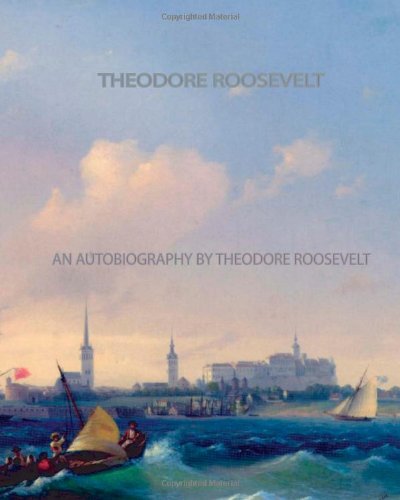 This collection chronicles the fiction and non fiction classics by the greatest writers the world has ever known. The inclusion of both popular as well as overlooked pieces is pivotal to providing a broad and representative collection of classic works.
This collection chronicles the fiction and non fiction classics by the greatest writers the world has ever known. The inclusion of both popular as well as overlooked pieces is pivotal to providing a broad and representative collection of classic works.
Click Here For More Information
The only way to really understand what made T.R. tick. Outstanding! This book is a tome of philosophy, adventure, intrigue, and above all, inspiration. Notwithstanding these encomia however, the reader should beware before making a hegira into its noble pages that this autobiography does not follow the traditional structure of a “biography.” Rather it can be described as being a compendium of T.R.’s philosophy on life. The true strength of its pages being found in how T.R.’s experiences and actions staunchly uphold and support his ‘vigor of life’ and probity which he so often addressed as being fundamental to all good Americans. Accordingly, I suggest a first-time reader of T.R. would be best served by initially reading a more “objective” biography of T.R. (I suggest Nathan Miller’s Theodore Roosevelt, A Life) in order to become familiar with the events and time frames involved. This will allow the reader to more appreciate the nature, values and beliefs of the great man as told in this book by the ultimate authority, himself.
A Great Chronicler of His Own Life and Times Having read several books about TR, I have heard a lot about his writing. Other than reading some of his letters and quotes in books, I had never read any of his work but picked his autobiography up from a used bookstore. I was looking for the Naval War of 1812, but ended up with this instead. I was not disappointed. Some parts of the book definitely dragged and if your patience for legislative maneuvering prior to 1900 in the New York legislature is limited, you might want to skip to the back half of the book. But what comes through in the book are TR’s passions: books, the outdoors, conserving the outdoors, and the Navy.The first half of the book is essentially told chronologically. But when TR gets to his presidency, he tells the tale thematically. There are chapters on conservation, trust busting and other industrial issues, and two chapters on international affairs. Unfortunately, the book ends with his presidency and does not go into TR’s world travels or his comeback bid in 1912. TR’s dislike for his hand picked successor, President Taft, permeates the presidency chapters.As with any autobiography, especially a presidential one, TR views himself as always right and his opponents as always wrong. His views on Taft are a good example of that. But that can hardly be viewed as a failing of the book, since that is a standard characteristic of these types of books.If you want a first hand view of the man in the arena, what he tried to do and how he tried to lead his life, read the book.